2023 Juneau Municipal Election
City-hired experts produced hazard maps for avalanches and landslides — how should the city balance responsible development with the needs of community members already living here?
- What makes you a good candidate for the Juneau Assembly?
- The city is asking voters to fund a new city hall through a $27 million bond. What are your thoughts?
- Do you think the city should limit cruise ship tourism? Why or why not? If so, how?
- What do you intend to do about Juneau’s housing crisis?
- City-hired experts produced hazard maps for avalanches and landslides — how should the city balance responsible development with the needs of community members already living here?
- What do you think is the most important issue facing Juneau right now?
- School Board
- What makes you a good candidate for the Juneau school board?
- What do you think is the biggest challenge facing the Juneau School District right now?
- If the school district were to consolidate schools and close certain campuses, what factors do you think district leaders should consider?
- How do you think the district should handle communicating with parents during emergencies?
- Do you think transgender students should be allowed to use bathrooms and play on sports teams that match their gender identity rather than their sex assigned at birth?
Areawide Assembly
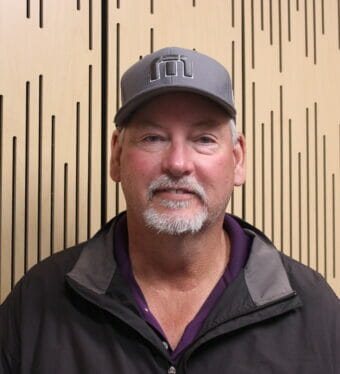
Jeff Jones
Candidate for Areawide Assembly
That’s kind of a touchy subject. I know there’s been a lot of people talking about the whole avalanche control. It’s a necessary evil, unfortunately, because people of Thane need to make it to town, they need to make it to work and they need to go home at night. As far as being able to develop that land, I don’t think there’s anything that can be done to be able to develop it in any useful fashion. Having avalanche control in town is very important.
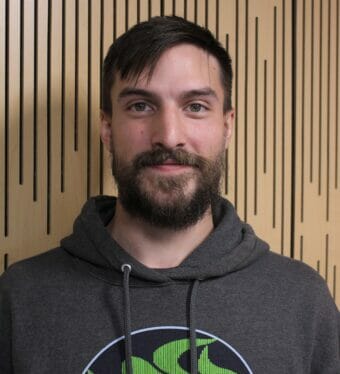
Nano Brooks
Candidate for Areawide Assembly
That’s a big item that’s had a lot of discussion in the community, and I’ve been trying to follow it as closely as I can. The new hazard maps do have possible implications affecting a lot of homes that weren’t in the original hazard maps, and there are insurance issues associated with maps like that. The city has kind of been on a path of hiring national corporations and outside sources to do consulting and give direction to how our city should be run, and as a result, we can end up with some of these less than desirable things that don’t work for the community of Juneau.
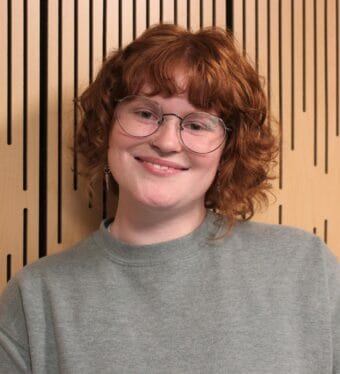
Ella Adkison
Candidate for Areawide Assembly
That ties back into our housing issue, right. I would venture to say there’s probably little place in Juneau that doesn’t have some risk associated. We’re right against mountains, and mountains, they move. We have avalanches, we have landslides. Rivers move. But while I think it’s really important for the city to regulate those areas that have a super high risk – where people really could die – or not sell city land that would be a really hazardous place for people to build, but at the same time, I think that limiting people from building in those sort of moderate risk areas is not the right way to go, because there’s quite a lot of that space there. I do think that people need to be informed, and the city needs to inform them when they have that risk, but then let people make an informed decision instead of limiting it all outright.
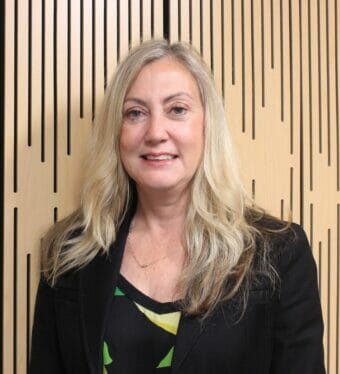
JoAnn Wallace
Candidate for Areawide Assembly
I feel like disclosure is key in those areas. I think the city should not adopt more maps. We need to do like we’ve always done – I’ve been in real estate for 17 years – we advise people that they’re in that zone, but we don’t want to make it so these zones are so scary that homeowners can’t resell their properties, and that’s kind of right now where I feel like it’s gone. We just need to advise people that these are hazardous zones, but it’s no different than being in a flood zone. People still want to live in those areas, so it’s all about disclosure.
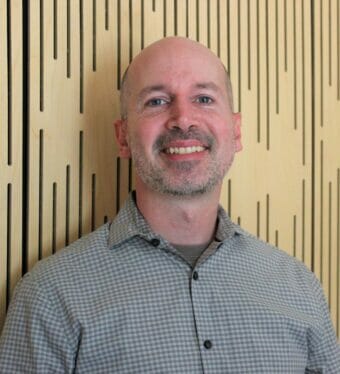
Paul Kelly
Candidate for Areawide Assembly
One idea I think would be to separate these hazard maps. It’s nearly impossible to get insurance for landslide hazards. And also reading the documentation from Tetra Tech, they don’t even have confidence enough in their own hazard maps – they have a little disclaimer in Appendix C that basically reads, ‘We didn’t have the resources to conduct a full study on landslides.’ I think what the best course of action would be would be to actually consider the avalanche maps and the landslide hazard maps separately. I think the Assembly needs to act quickly. I was knocking on yet another person’s door who lives in that area, and he was telling me he’s been trying to sell his place for six months, but he can’t because the banks who are lending people money and the insurance companies, they’re looking at those, even though what we have online isn’t the official adopted maps. We haven’t updated the maps since 1987. But the companies are still looking at those maps and they’re being very conservative, and it’s being very difficult for people like him who want to sell their home and downsize and move into something that’s a little more suitable.
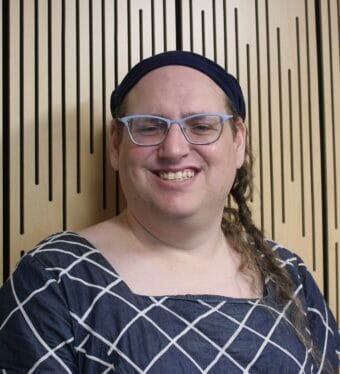
Emily Mesch
Candidate for Areawide Assembly
I think responsible development is part of the needs of the community that’s already living here. If we don’t have a voice saying this is a bad place to build, then it’s easy for developers to take advantage of potential homeowners and land-buyers, and sell them a piece of land that is more dangerous they think. Buyer beware, but the city has a role in making sure that residents know what they’re getting into. We don’t want to see more tragedies like last month at Mendenhall River. Things are going to happen, this is Juneau – we’re going to have avalanches, we’re going to have landslides, but we want to be able to minimize that as much as possible. Saving lives is, at the end of the day, the most important thing.
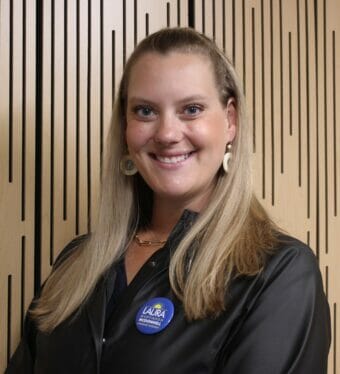
Laura Martinson McDonnell
Candidate for Areawide Assembly
I think ultimately what we can do is offer all the available information to the people and, at some point, it’s going to have to be their decision. For folks that have been living there for generations, I certainly don’t think we can force anybody to leave, if that’s their decision to stay. But we do need to make sure that everybody has all the information to make their own decisions. What’s going to get tricky is moving forward, depending on what happens with those hazard maps, you have to consider financing for future home sales in those areas and what do potential home-buyers need to go through in terms of acquiring insurance and financing. It’s a really complex issue, but I think ultimately it needs to be up to the people and where everybody feels comfortable living is going to have to be up to those individuals.
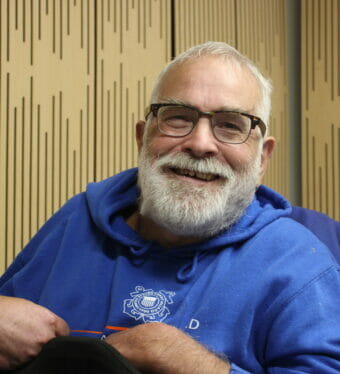
Ivan Nance
Candidate for Areawide Assembly
Number one, you’ve got to look forward and have some kind of a reasonable expectation for what’s going to happen. What’s it going to be like next year, or in the next 10 years, with the snow and the runoff that happens? Certainly, this event up where some houses got washed away because of glacial runoff is different. And that’s because of the climate change that’s gone on. So it needs to be not exactly studied, but a good current set of knowledge put together to make the basis of plans.
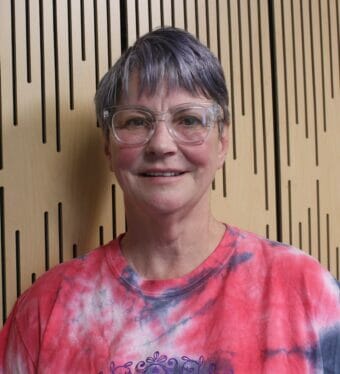
Michele Stuart-Morgan
Candidate for Areawide Assembly
What happened on Mendenhall River is going to continue to happen. We cannot just bury our head and say if we don’t deal with this it will go away. The next time we have an erosion issue, the next time we have a mudslide, we have an avalanche, people will die. That can’t be balanced with your property values. There has to be a way to look at this and do a preventative measure instead of waiting and doing a knee-jerk reaction after something horrible happens. When the towers went down at Snettisham, AEL&P built barriers. In other countries, they have ski resorts and they build barriers and they work together with the environment to protect those buildings and manmade things. There has to be ways to do that and we have to look at that. We can’t just look away and say it will ruin my property. It’s going to ruin it, and it’s going to take lives. So let’s get proactive on that one now.
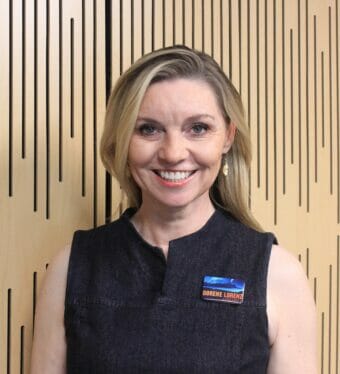
Dorene Lorenz
Candidate for Areawide Assembly
That’s really an easy question, and I don’t understand why people are having such a hard time answering it. If you have awareness of a risk, you let people know. You send them a notice once a year with their property taxes saying, ‘Hey, so you’re aware, you’re living in an area or you own property in an area that’s high risk, and here are some resources that you might be able to use to mitigate that risk.’ You don’t just let it go loosey goosey. And I appreciate that people have invested, and they have their livelihoods and their life’s fortune in these areas that are high-risk areas. But we have to do due diligence, and we have to let them know as well as anyone who’s going to be purchasing that property, have the opportunity to go up on a website and look at a map and say, ‘Oh, yeah, this is at a bottom of a chute, and easily anyone can see a rock slide or an avalanche or something’s going to be coming down there or the potential is there,’ so that when I’m buying that property, I am aware of the risk. The last thing you want is someone coming from flat land, coming here, buying at the end of the chute, getting wiped out and being totally oblivious that there was even a risk. I think that that’s really poor on our part and we’re not taking care of our citizens.
District 2 Assembly
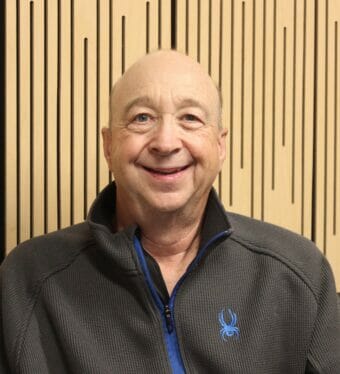
David Morris
Candidate for District 2 Assembly
The zones that they redid in 2020, I believe, I’ve had a lot of people when I’ve been talking to people say that these zones aren’t fair. And if you look at some of them, the zone covers this area but the avalanche chute is over here on one side and over on the other side, but the middle section has no danger of an avalanche zone. And it’s red, so people can’t build or put subdivisions there. I think we need to relook at the maps and how they’re drawn.
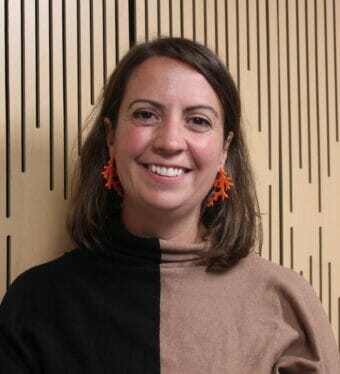
Christine Woll
Candidate for District 2 Assembly
I’m not sure that the city can do a lot to tell people where they can and can’t live or where they should or shouldn’t build. But I do think the community needs a lot more education about the hazards. Landslides, avalanches and flooding are all going to increase in severity with climate change, and I don’t know that the public really knows enough about that risk right now. So I think we have a duty to educate people living in these hazard areas as well as future property owners about the risks that come with that choice to live or build in those areas.
District 1 Assembly
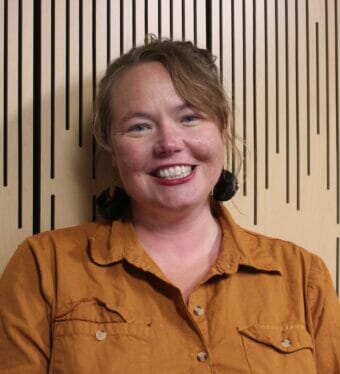
Alicia Hughes-Skandijs
Candidate for District 1 Assembly
This has certainly been something we were thinking about just earlier this week. We took a look at the hazard maps, and one of the options got forwarded to the full Assembly so we can hear public testimony about it.
I think the way I’m approaching it is, we know that a lot of Juneau is in one kind of hazard zone or another, so we have to be mindful of that, that we’re taking care, that we’re not creating regulations so stringent that we don’t have anywhere we can live, especially when we know we need to develop more housing. So that’s one side of it. The other side of it is, I think you do have a responsibility to notify people and let people be aware of the fact that they are taking some personal risk by what kind of hazard they’re living near so they have the information, what they need to be watching.
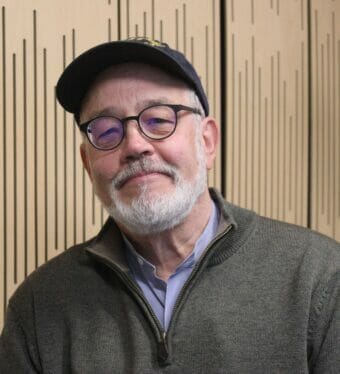
Joe Geldhof
Candidate for District 1 Assembly
I come down on the side of the residents who live here. The City and Borough of Juneau arguably, and I think actually does, spend way too much money on outside consultants who prepare glowing reports that go nowhere. And they do that in a number of ways, Parks and Rec does it, it’s done all over the place. I think they’ve done a disservice to people who have lived here for a long time, and in some ways it doesn’t comport with reality. Juneau has always been in a difficult building zone, and hiring somebody from outside to come in and recapitulate the obvious doesn’t really help anybody. It just stresses property values, and there’s better ways of doing that than hiring outside consultants who come in and put a clout on a lot of people’s property.